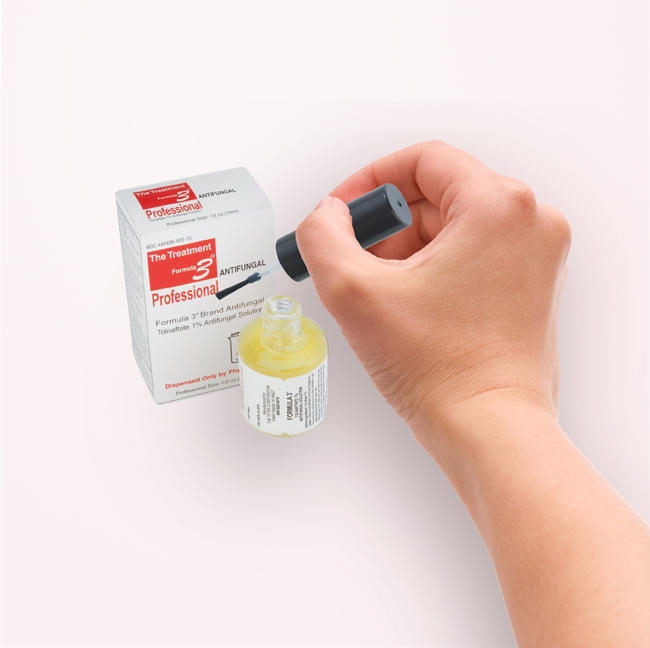
Since qualifying in late 20219 we have come across our fair share of fungal infections. They come in a varying amount of ways such as infection in the nails, Tinea Unguim and Athlete’s Foot, Tinea Pedis. These are the most common ut by no means the only form.
When the fungal infection is present in the nails it can appear different from person to person as there are about 300 different types, according to CDCs claims. In our clinic we can test for the presence of a fungal infection with a 97.2% accuracy rating using Diafactory.
Once we can establish a positive reading for the presence of a fungal infection, we can begin treatment. Our tried and tested treatment approach is Formula 3. Each client will be given an individual treatment approach. Our most effective treatment advice is daily use of Formula 3 with monthly check ups and treatments. The most common misconception of treating this infection is “it’ll be gone in two weeks”. In our experience this way of thinking is not accurate. It’s hard to say exactly when a fungal infection will be cleared, however, the best timeline to give yourself is based on a) how long you’ve had the infection long time = long treatment and b) pace of nail growth, the average nail growth is 1mm a month and the average nail being 10mm in length.
The best time to start a fungal nail treatment is asap, but UV rays are known to kill off fungal infections so spring/summer would obviously work in your favour. Us Irish however can’t guarante much sunshine so now is as good a time as ever to begin treatment.
The other common type of fungal infection is Tinea Pedis, most commonly known as Athlete’s Foot. It can be identified as an itch on the skin between the toes or on the foot with little red dots appearing around the area and peeling skin. The options around treating this can come in the form of creams or powders but the product we stand by is Fungifoam. Tinea Pedis should clear up within the 4 week mark. Recurrence of Tinea Pedis is common so to reduce this happening make sure to clean footwear thoroughly as well as deep cleaning socks or purchasing brand new ones when infection has cleared.
If you or someone you know feels they may have any of these conditions, or are simply looking for advice and guidance call us on 0892560354 or email us through our website www.steprightfootclinic.ie
We have 2 locations Waterford & New Ross,
PLEASE SELECT it during the reservation